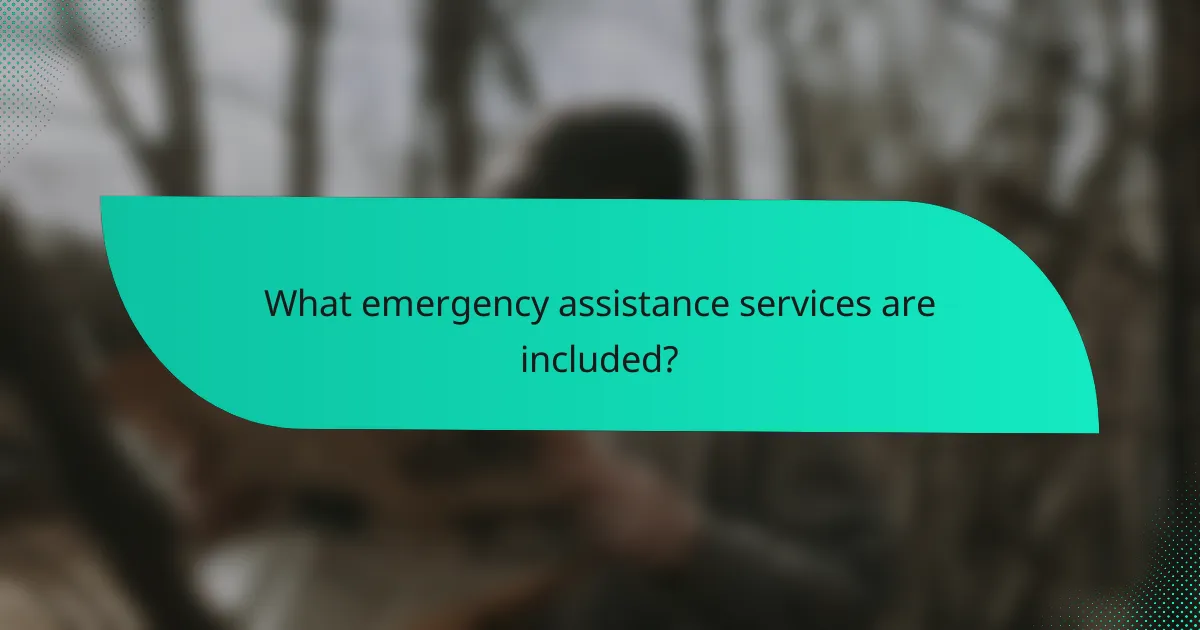Travel insurance is essential for safeguarding your journey, providing trip security and financial protection against unforeseen events such as cancellations, medical emergencies, and lost belongings. With options from reputable providers like World Nomads and Allianz Travel Insurance, travelers can find tailored coverage that ensures peace of mind and access to emergency assistance whenever needed.

What are the best travel insurance options for international trips?
The best travel insurance options for international trips provide comprehensive coverage for trip cancellations, medical emergencies, and lost belongings. Key providers include World Nomads, Allianz Travel Insurance, and Travel Guard, each offering unique benefits tailored to different travel needs.
World Nomads
World Nomads is ideal for adventurous travelers, offering coverage for a wide range of activities, including hiking, skiing, and scuba diving. Their policies are flexible, allowing you to purchase insurance while already traveling, which is a significant advantage for spontaneous trips.
Consider their coverage limits, which typically range from $50,000 to $1 million for medical expenses, depending on the plan. Always read the fine print to understand exclusions, especially regarding high-risk activities.
Allianz Travel Insurance
Allianz Travel Insurance is known for its extensive network and customer service. They offer several plans, including options for single trips and annual coverage, making it suitable for frequent travelers. Their policies often include trip interruption and cancellation benefits.
When selecting a plan, check for coverage limits on medical expenses, which can vary widely, and ensure it meets your travel destination’s requirements. Allianz also provides 24/7 assistance, which can be invaluable in emergencies.
Travel Guard
Travel Guard provides customizable travel insurance plans, allowing travelers to tailor their coverage based on specific needs. Their policies cover trip cancellations, medical emergencies, and even rental car damage, making them a versatile choice.
Review the different tiers of coverage, as they range from basic to comprehensive. Pay attention to the policy’s maximum coverage limits and any deductibles, which can affect your out-of-pocket expenses in case of a claim.

How does travel insurance provide trip security?
Travel insurance offers trip security by protecting travelers from unexpected events that could disrupt their plans or incur financial losses. It typically covers cancellations, interruptions, and emergencies, ensuring that you can recover costs or receive assistance when needed.
Coverage for trip cancellations
Travel insurance often includes coverage for trip cancellations, which can reimburse you for non-refundable expenses if you must cancel your trip for a covered reason. Common reasons include illness, injury, or unforeseen events like natural disasters.
When purchasing travel insurance, check the specific reasons covered under cancellation policies, as they can vary significantly. Some policies may offer “cancel for any reason” options, which provide broader coverage but usually at a higher premium.
Protection against lost luggage
Lost luggage protection is a key feature of travel insurance, compensating you for personal belongings that are delayed, lost, or damaged during your trip. This coverage can help you replace essential items while you wait for your luggage to be returned or to recover costs for lost items.
When selecting a policy, review the limits on coverage for lost luggage, as they can differ. It’s advisable to keep receipts for valuable items and document your belongings to facilitate claims. Additionally, familiarize yourself with the claims process to ensure a smooth experience if your luggage goes missing.

What emergency assistance services are included?
Emergency assistance services in travel insurance typically encompass a range of support options designed to help travelers during unexpected situations. These services often include access to a 24/7 emergency hotline and medical evacuation services, ensuring that you receive timely help when needed.
24/7 emergency hotline
A 24/7 emergency hotline is a critical feature of travel insurance, providing immediate access to assistance regardless of your location. This hotline connects you with trained professionals who can guide you through emergencies, whether it’s a medical issue, lost luggage, or legal assistance.
When using the hotline, be prepared to provide your policy number and details about your situation. This will help the representative offer tailored support quickly. Always check your insurance policy for the specific contact number and any procedures you need to follow.
Medical evacuation services
Medical evacuation services are essential for travelers who experience serious health issues while abroad. This service ensures that you can be transported to a suitable medical facility, often back to your home country, if necessary. Coverage typically includes air ambulance transport and ground transportation to hospitals.
Before traveling, confirm the specifics of your medical evacuation coverage, including any limits on distance or costs. In some cases, these services can be quite expensive, so understanding your policy can help you avoid unexpected expenses during a medical emergency.

How does travel insurance offer financial protection?
Travel insurance provides financial protection by covering unexpected costs that may arise during a trip, such as medical emergencies or trip cancellations. This safety net helps travelers manage risks and avoid significant out-of-pocket expenses.
Reimbursement for medical expenses
Travel insurance typically covers medical expenses incurred due to illness or injury while traveling. This can include hospital stays, doctor visits, and emergency medical transportation, which can be costly, especially in countries with high healthcare costs.
For example, if a traveler falls ill in the United States, medical bills can quickly reach thousands of dollars. A good travel insurance policy may reimburse these costs, provided the traveler has the necessary documentation and meets policy conditions.
Compensation for trip interruptions
Trip interruption coverage compensates travelers for lost expenses if they need to cut their trip short due to unforeseen events, such as a family emergency or natural disaster. This can include reimbursement for unused travel costs, such as flights and hotel reservations.
Travelers should review their policy limits and conditions, as coverage can vary. For instance, some policies may cover up to 100% of non-refundable expenses, while others may have lower limits. Always keep receipts and documentation to support claims for compensation.

What factors should I consider when choosing travel insurance?
When choosing travel insurance, consider coverage options, your destination, and the duration of your trip. These factors will help ensure you select a policy that meets your specific needs and provides adequate protection during your travels.
Destination-specific coverage
Destination-specific coverage is crucial because different regions have varying risks and healthcare standards. For example, traveling to countries with high medical costs, like the United States, may require higher coverage limits compared to destinations with lower healthcare expenses.
Additionally, some areas may have unique risks such as political instability or natural disasters. Always check if your policy includes coverage for these specific risks, as well as any local regulations that may affect your travel.
Duration of the trip
The duration of your trip significantly impacts the type of travel insurance you should choose. Short trips might only require basic coverage, while longer journeys often necessitate more comprehensive plans that include emergency assistance and trip cancellation options.
When selecting a policy, ensure it covers the entire duration of your trip, including any layovers or additional travel days. Some insurers offer multi-trip policies for frequent travelers, which can be more cost-effective than purchasing separate insurance for each trip.

How can I compare travel insurance policies effectively?
To compare travel insurance policies effectively, focus on key factors such as coverage limits, exclusions, and premium costs. Evaluating these elements will help you find a policy that meets your specific travel needs while providing adequate protection.
Using comparison websites
Comparison websites allow you to view multiple travel insurance policies side by side, making it easier to assess coverage options and prices. Look for sites that filter results based on your travel destination, duration, and activities, ensuring that the policies are relevant to your trip.
When using these platforms, pay attention to the details of each policy, including emergency assistance services and financial protection limits. Some popular comparison sites include InsureMyTrip and Squaremouth, which provide user-friendly interfaces and comprehensive policy comparisons.
Reviewing customer feedback
Customer feedback is crucial for understanding the reliability of travel insurance providers. Look for reviews on independent platforms such as Trustpilot or Consumer Affairs to gauge the experiences of other travelers with specific policies.
Focus on comments regarding claims processing, customer service, and overall satisfaction. A policy with numerous positive reviews may indicate a trustworthy provider, while consistent complaints about claims could signal potential issues. Always consider both the quantity and quality of reviews to make an informed decision.
